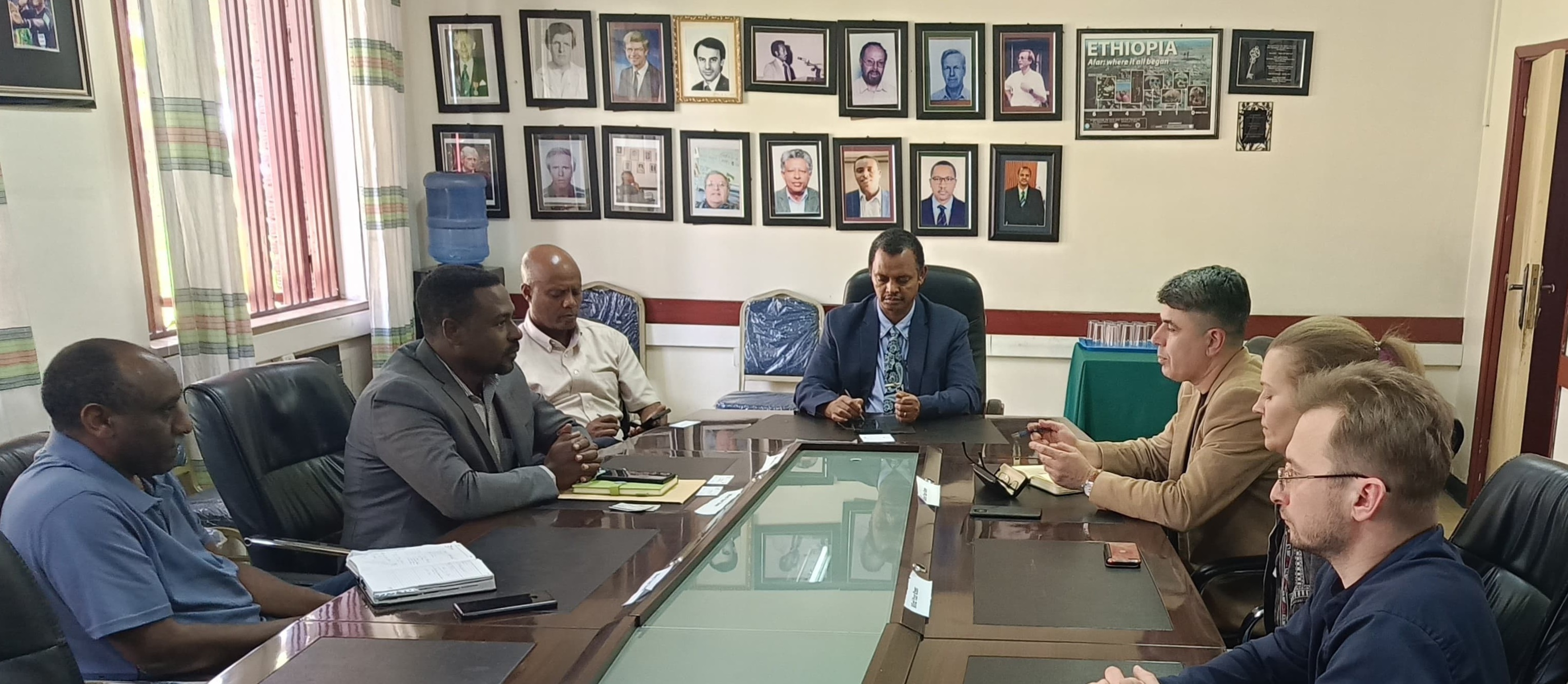
On February 13-15, 2025, the delegation of the Institute – Dr. Vladimir Dedkov, Deputy director for research, Dr. Anna Dolgova, Head, laboratory of molecular genetics of pathogenic microorganisms, and Dr. Dmitry Polev, Head, metagenomic research group made a working visit to the Armauer Hansen Research Institute (AHRI, Addis Ababa, Federal Democratic Republic of Ethiopia) to discuss joint research projects within the frames of activities, devoted to assist CIS and African countries in ensuring sanitary and epidemiological well-being.
During the visit, three joint meetings were held, two of which were held in an expanded format with the participation of heads and representatives of various AHRI departments. During the meetings, the representatives of the Russian and Ethiopian institutes delivered presentations, describing the structure and areas of activity of the institutions, after which they discussed the most promising areas for cooperation. The parties noted a wide range of common interests and great prospects for cooperation, and also agreed to sign a memorandum of understanding. The Ethiopian colleagues expressed a desire for long-term cooperation. The parties came to the unanimous opinion that cooperation should be developed gradually, starting with internships for young Ethiopian experts at the St. Petersburg Pasteur Institute. Russian scientists got acquainted with AHRIscientific and medical laboratories, noting the average level of technological support and instrumentation, allowing for basic microbiological and molecular genetic research, including next-generation sequencing. A significant part of the equipment was provided by the United States under the USAID program. At the same time, research is limited by a lack of material resources, i.e. shortage of reagents, kits and consumables, which is determined by the low level of funding, difficulties in procurement and long delivery times.
The Ethiopian side was most interested in the possibility of the Russian Federation providing assistance in purchasing consumables and equipment, in developing or supplying ready-made kits of Russian manufacture for diagnosing viral and bacterial diseases, training at the St. Petersburg Pasteur Institute in bioinformatics and cell biology methods, including hybridoma technologies. In addition, the Ethiopian side showed interest in the experience of practical implementation of scientific developments of Russian scientists.
In its turn, the Russian side is interested in the wide network of universities and medical institutes throughout Ethiopia associated with AHRI, which allows collecting material for research. In addition, AHRI has collections of biological samples that are promising for testing test systems developed in Russia or for studying the genetic diversity of bacterial and viral pathogens.



